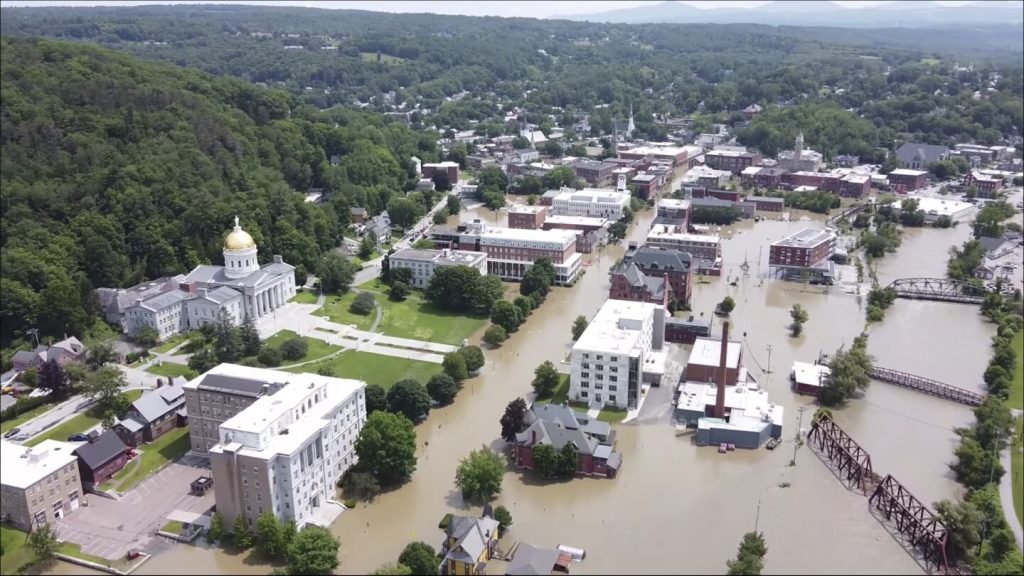The Vermont Legislature is moving forward with a bill that would require big fossil fuel companies to pay a share of the damage caused by climate change. This decision comes after the state experienced catastrophic flooding and damage from extreme weather events. The Senate is set to finalize the proposal soon, with the House to follow. Senator Nader Hashim, a Democrat, believes that the entities responsible for contributing to climate change should also contribute to fixing the problems they caused. Similar measures are being considered in Maryland, Massachusetts, and New York, but Vermont’s bill is advancing more quickly through the Legislature.
Republican Governor Phil Scott, who faces a Democratic majority that could override a veto, has raised concerns about the potential costs involved in leading this effort. Critics, including Republican state Senator Randy Brock, argue that Vermont is a small state compared to large fossil fuel companies like Exxonmobil, making it risky for them to be the first to implement such legislation. The bill would require the state treasurer, in consultation with the Agency of Natural Resources, to provide a report on the total cost of greenhouse gas emissions to Vermont from 1995 to 2024. The assessment would include the impacts on public health, natural resources, agriculture, economic development, housing, and other areas.
The proposed legislation follows a polluter-pays model, targeting companies involved in fossil fuel extraction or oil refining that have contributed more than 1 billion metric tons of greenhouse gas emissions. The funds collected would be used for climate change adaptation projects in the state, such as stormwater drainage upgrades, road improvements, sewage plant relocations, and energy-efficient building retrofits. While Exxonmobil did not immediately comment on the bill, the American Petroleum Institute sent a letter to the state Senate opposing it, citing concerns about constitutionality and fairness. The oil and gas industry lobby group believes the legislation could impose unfair costs and liability on companies for past legal activities.
Legal experts, such as Jennifer Rushlow from the Vermont Law School, anticipate that the bill may face legal challenges if it becomes law, but they believe the state would likely prevail. Environmental law clinics have offered support to offset potential legal costs. Rushlow acknowledges that Vermont may be the first to enact such legislation, but argues that someone has to take the lead in addressing climate change impacts. House Speaker Jill Krowinski expressed interest in reviewing the bill and its implications for the state’s climate change goals. She looks forward to further discussions on climate change policies in the latter part of the legislative session.
Senator Hashim emphasized the urgency of addressing severe weather patterns and rising climate change impacts that are increasingly damaging to Vermont. He believes that adapting to these changes and building resilience will require financial resources that the state currently lacks. Hashim suggests that the burden can either fall on Vermont taxpayers, be left to federal government assistance, or be shouldered by fossil fuel companies. He argues that holding these companies accountable and making them pay their fair share is a necessary step in addressing the costs associated with climate change. The bill represents Vermont’s proactive approach to mitigating the effects of climate change and seeking accountability from major contributors to environmental degradation.


